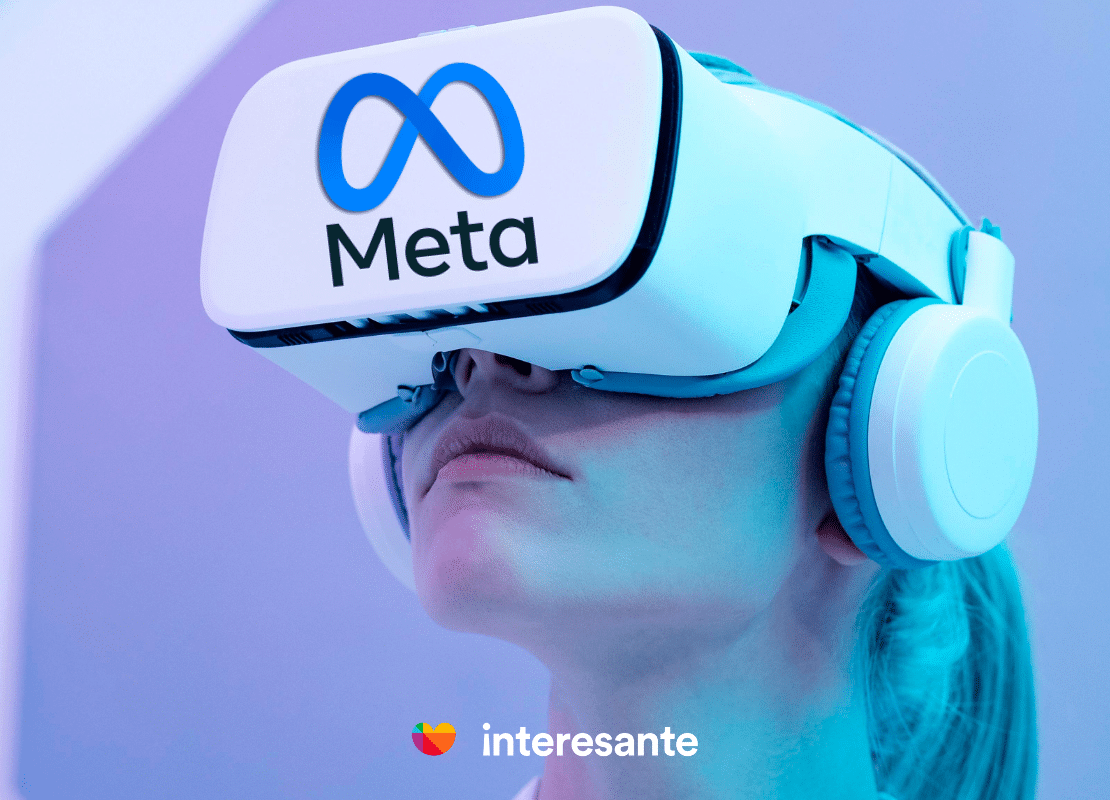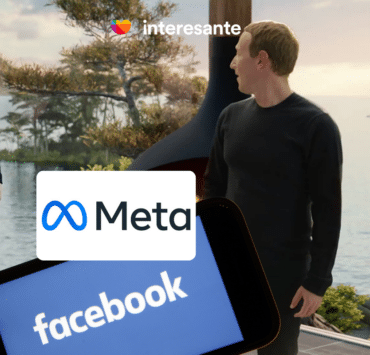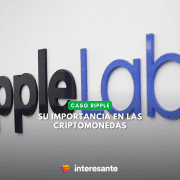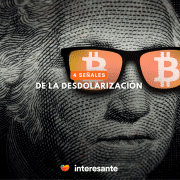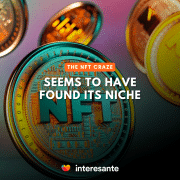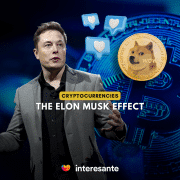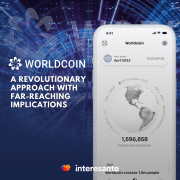Ingeniero en sistemas con interés en gadgets, startups, programación, ciberseguridad…
Facebook recently changed its name to Meta. This change has several implications, particularly its immersion in the so-called Metaverse. Characters like Elon Musk are skeptical of this proposal. The idea is quite unsettling, considering the company’s misuse of data. This demands a critical overview of Mark Zuckerberg’s Metaverse and reinforces the urgency of migrating to a decentralized internet based on blockchain.

Facebook changes its name to Meta
In late October 2021, Mark Zuckerberg announced that Facebook would change its name to Meta. On the one hand, the change implies that this new corporate entity will encompass its Facebook, Instagram, and WhatsApp operations. On the other hand, its name refers to the coming user experience based on the Metaverse.
This change corresponds only to the general name of the company, not to the social network. Therefore, the applications belonging to the Meta will still be called «Facebook,» «Instagram,» and «WhatsApp,» and they will keep the same design. However, new features and tools could complement the Meta idea.
The next platform will be even more immersive — an embodied internet where you’re in the experience, not just looking at it. We call this the metaverse, and it will touch every product we build.
Mark Zuckerberg
The announcement drew more criticism than praise from politicians, academics, privacy advocates, and the media after revelations surfaced alleging that Facebook’s algorithm purposefully ranks higher content politically polarizing. Furthermore, it has been known that these practices don’t just remain in the digital realm. They have influenced real-world events, such as the January 6th insurrection in Washington D.C.
Facebook and Its Global Impact
The rise of Facebook has catapulted Zuckerberg into one of the most powerful and influential people. No one can argue that Facebook has not changed how we communicate and link with others, whether family, friends, acquaintances, co-workers or even strangers.
At its beginning (2004-2006), Facebook was merely a playful way to interact with classmates and friends from school as it was restricted to college students. Since then, it has morphed into a digital social platform with 3 billion users to whom it aims to offer the metaverse experience.
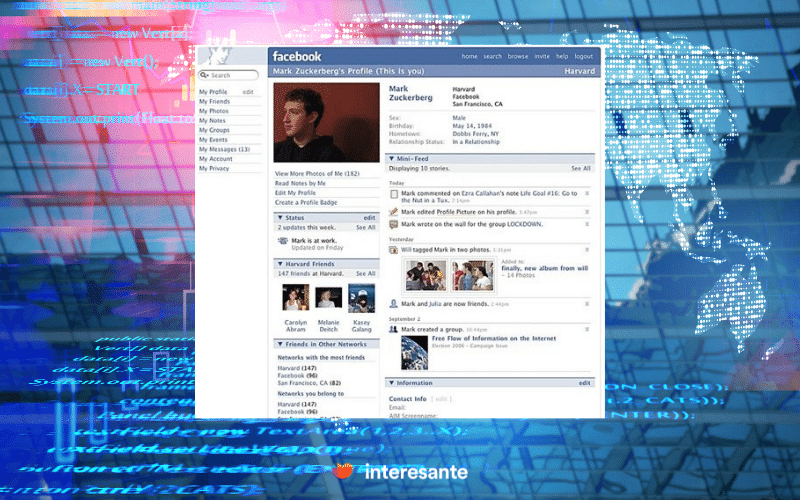
Facebook is one of the most used technology products in the history of the world. It’s an iconic social media brand. … But increasingly, it’s not all we do. In our DNA, we build technology to bring people together. The metaverse is the next frontier in connecting people, just like social networking was when we got started.
Mark Zuckerberg
Launch of Meta, Marketing strategy after Facebook’s reputational crisis?
During its annual virtual reality conference, Facebook Connect 2021, Mark Zuckerberg announced its intentions to rebrand into Meta, with its change reflected in the stock exchange beginning December 1st. This announcement was preceded by Facebook formally presenting a team at the company that would world on the constituting project for the Metaverse.
To mark this occasion, Zuckerberg wrote a letter presenting his vision of Facebook’s beginning and where it is now. Zuckerberg’s positive and hopeful tone contrasts with the polemics that run after his company.
As we embark on this next chapter, I’ve thought a lot about what this means for our company and our identity. … We’re a company that focuses on connecting people.
Mark Zuckerberg
The release of Meta may seem like a marketing strategy or a smokescreen after polemics regarding Facebook’s misuse of users’ data. Other critics sustain that this proposal isn’t innovative. Elon Musk said in an interview with The Babylon Bee that the idea of the Metaverse isn’t compelling enough. He doesn’t think people will want to spend all day long looking at a screen tied to their heads.
The long-term use of screens generates ocular fatigue, so Musk’s concern is legitimate. However, even though not all day long, it is feasible that interactions in Meta’s social networks will soon migrate to the Metaverse and popularize this form of social interaction.
-
Synthetic Data and AI are reshaping social connectivity
In a data-driven world, the evolution of artificial intelligence is dramatically reshaping our social interactions. Central to this transformation is synthetic data, a technological marvel that programmatically simulates real-world information. Let’s explore how synthetic data and AI strengthen social networks, offering privacy, economic efficiencies, and personalized experiences. The Emergence of Synthetic Data Synthetic data has…
-
Synthetic Data For AI and LLMs: A $2.34 Billion Breakthrough And It’s Just Getting Started
Explore how synthetic data is set to transform AI, projected to grow to a $2.34 billion industry by 2030. Learn about the benefits of synthetic data in AI training, including enhanced privacy and scalability. Discover how leaders like Mark Zuckerberg are leveraging synthetic data and feedback loops to innovate AI development ethically and efficiently.
-
What Are AI Agents And Why Do They Matter?
In today’s fast-paced tech environment, AI agents are revolutionizing how we interact with technology. These advanced systems do more than perform tasks—they anticipate our needs, making daily life smoother and more intuitive. This new wave of technology promises to transform routine challenges into seamless experiences.
-
Deadpool & Wolverine: 10 cosas que debes saber antes de ver la película
Deadpool & Wolverine se ha estrenado en medio de una crisis en el cine de superheroes, aunque con una ventaja a su favor: no se toma demasiado en serio. Hoy, te revelamos 10 cosas que debes saber antes de aventurarte a ver Deadpool & Wolverine, el estreno recién salido del horno hollywondense. Deadpool & Wolverine es uno de los lanzamientos de…
-
Los 10 mejores finales de series de TV y streaming
Los 10 mejores finales de las series son un tema que puede polarizar opiniones. Dicen que las series son el nuevo cine. Lo que es un hecho, es que la era dorada de las series no termina y nos ha dejado para la posteridad auténticas obras de arte y grandes finales. Hoy, te presentamos el…
-
Cobra Kai sexta temporada: Lo bueno y lo malo
Cobra Kai llega a su final en su temporada seis y este jueves 18 de julio se estrenaron los primeros cinco capítulos (constará de 15 episodios, divididos en tres partes) que dan cierre definitivo a una de las series que lograron brillar con personalidad propia tan surgir como propuestas que explotaban la nostalgia. Hoy, en…
Zuckerberg’s New Quest: The Metaverse
Zuckerberg’s vision for the Metaverse attempts to put in the best possible light an idea that has been the basis of many dystopian worlds that lie in the public consciousness, from works of literature such as A Brave New World to pop culture phenomena such as The Matrix and Ready Player One.
More precisely, the term was invented by Neal Stephenson in the novel Snow Crash, published in 1992. It refers to a world of virtual reality where avatars of people live. Zuckerberg’s proposal, Meta, follows this conceptual line, for it pursues to give an immersion experience beyond the visual, just like gaming has been exploring for several years now.
People will be able to share immersive experiences with others, even without being physically together. It will be like living in a virtual world, doing real activities and others that would be impossible today.
The defining quality of the metaverse will be a feeling of presence — like you are right there with another person or in another place. Feeling truly present with another person is the ultimate dream of social technology. That is why we are focused on building this.
Mark Zuckerberg
Meta introduces NFTs
Although the Metaverse as such is still in the works, Meta has had its first approach with NFTs. This month it introduced its pilot plan in which collectors and creators can add their NFTs to Instagram in their posts and profile pictures. At the moment, it is only available for some users. However, posts with NFTs are visible to everyone and, in turn, information such as which collection it belongs to, who is the creator, and its owner.
Meta also plans to create its virtual token and cryptocurrency. Unlike traditional cryptocurrencies, this one would be controlled and centralized by the company. It would be intended primarily for the Metaverse, although it could also provide Meta with a new revenue channel and control over transactions in its applications.
According to CNBC reports, in the last days of May, Zuckerberg’s company has decided to temporarily reduce or pause the hiring of new talents, due to the slow growth of income and possible future losses, among other things, due to the new Apple’s privacy policies. This decision directly affects the Metaverse project, which has been in development for months.
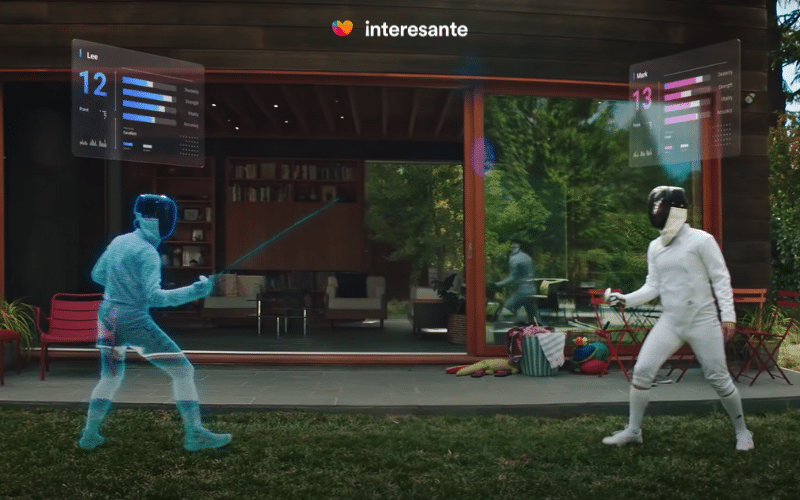
Virtual reality experience beyond sci-fi literature through technology originated in gaming. The idea of video games with no specific missions which characterize traditional gaming was created in the so-called «Sandboxes» like The Sims or Minecraft.
Facebook’s Unending Controversy
The timing of the announcement was certainly suspicious, only a few days after 60 minutes broadcast of a segment in which whistleblower Frances Haugen presented internal Facebook documents and studies outlining several damning practices at the company: algorithms that favor polarizing posts, lax oversight of posts that contain misinformation, or inflammatory content that incites violence.
The document also mentioned that Instagram has a measurable, adverse effect on the psychological constitution of teenagers, affecting their self-image and feelings of self-worth, so the timing seemed particularly convenient. Facebook Founder and CEO Mark Zuckerberg once again drew scrutiny from the United States Congress, giving ammunition to voices within American political circles that Big Tech, and mainly digital social networks, cannot be trusted to self-regulate.
The Shadow of Cambridge Analytica
The release of internal Facebook documents by Frances Haugen provided concrete evidence that Facebook has not committed to reforming its core business or at the very least encoding robust and reliable safeguards into its algorithms to prevent their manipulations by bad actors -whether state-sponsored or not- to influence real-world events.
Such instances, the most notorious one, was the case of Cambridge Analytica -the political consultancy firm that used Facebook user information to influence the political developments relating to the vote in the United Kingdom on leaving the European Union (BREXIT)- have not been isolated events, but have marked, on the political and social front, an ever-increasing political polarization among the populations of Western liberal democracies.
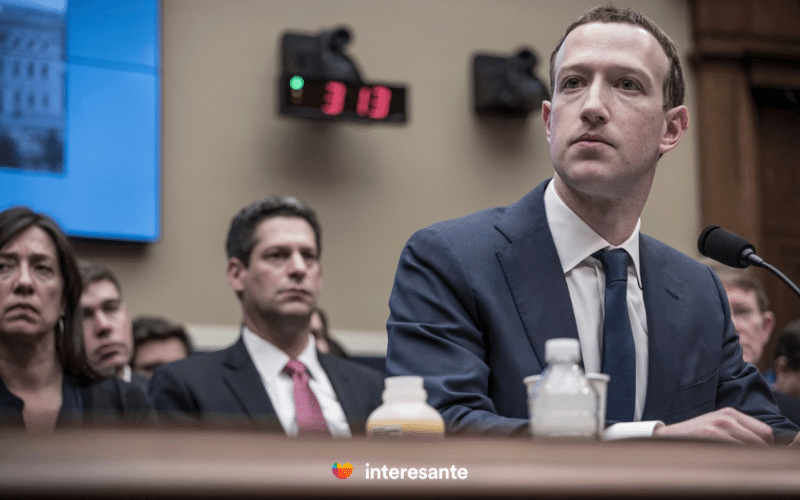
A few days ago the Cambridge Analytica case sounded again since the Washington prosecutor’s office has just sued Zuckerberg to take personal responsibility for this case. The civil suit, filed in the District of Columbia Superior Court, seeks damage compensation from Zuckerberg.
Effective Attempts at Reform?
After the Cambridge Analytica controversy, Facebook did institute some changes, mainly about the information that third-party applications could collect from users. However, the impact of its ranking algorithms for its news feed, with modifications made to it in 2018, has not diminished.
With the intent of «optimizing for content that gets engagement, or reaction,» according to Haugen, Facebook’s research has shown «that content that is hateful, that is divisive, that is polarizing, it’s easier to inspire people to anger than it is to other emotions.» Internal Facebook documents have made it clear that the real-world impact is hard to mask.
Putting Things into Perspective: How Pertinent is Meta?
The idea of the Metaverse has a wide walking path in gaming. In this case, the impact without precedents would be due to the number of Facebook users around the globe. Nevertheless, the uncertainty of Meta is still latent because of the misuse of users’ data in this company incurred.
According to Facebook’s own internal documents, Facebook became something global, unintended, unexpected, and uncontrollable. Despite the company’s best efforts to root out hate speech and misinformation, it has internally admitted that its algorithm and underlying systems cannot remove malicious content. Before creating the Metaverse, Zuckerberg should have worked out the problems his companies are involved in.
On the other hand, although Web 3.0 is still a blurry concept, it should not be confused with Zuckerberg’s Metaverse. The new internet must be based on blockchain technology to be decentralized. When Jack Dorsey warns that Web 3.0 may be dominated by capitalist entities, he may refer to entities like Meta.
You don’t own “web3.”
— jack (@jack) December 21, 2021
The VCs and their LPs do. It will never escape their incentives. It’s ultimately a centralized entity with a different label.
Know what you’re getting into…
To enclose this reflection, I would like to quote these words spoken by one of the lead characters of 1984 that precipitated the outcome of this fascinating novel. While they are from a sci-fi story, one must be conscious -and wary- of dystopic visions becoming a reality.
The choice for mankind lies between freedom and happiness, and … for the great bulk of mankind, happiness [is] better.
George Orwell
FAQ Meta
The change to Meta implies that this new corporate entity will encompass the operations of Facebook, Instagram, and WhatsApp. It also refers to the new form of user experience based on the Metaverse.
No. This change corresponds only to the general name of the company, not to the social network. The applications belonging to Meta will still be called «Facebook,» «Instagram,» and «WhatsApp,» and they will keep the same design.
Zuckerberg’s vision for the Metaverse attempts to make available to large numbers of people an idea that has been the basis of many dystopian worlds found in the public consciousness, from literary works like Brave New World to pop culture phenomena. Like The Matrix and Ready Player One.
The Metaverse is a virtual reality world where people’s avatars inhabit. Zuckerberg’s proposal, Meta, follows this conceptual line and will provide an intense immersion experience beyond the visual. They will share immersive experiences with others, even without being physically together. It will be like living in a virtual world, doing real activities and others that would be impossible today.
Updated: 27/05/2022 by Sarahy Uribe.
What's Your Reaction?
Ingeniero en sistemas con interés en gadgets, startups, programación, ciberseguridad y machine learning.
